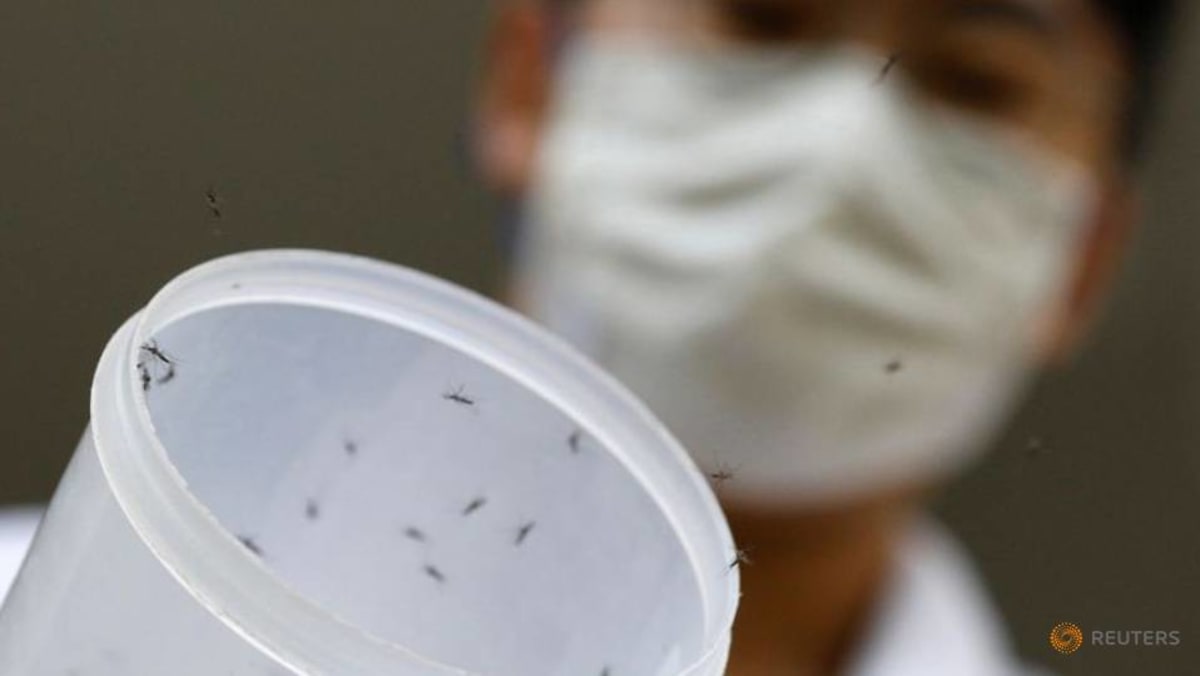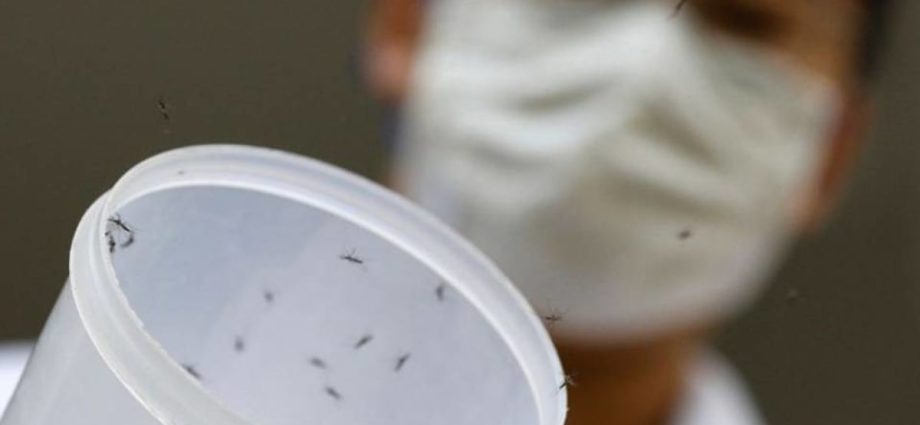
“NOT A SILVER BULLET”
A combination of van and manual releases is currently used at the Tampines and Marine Parade study sites and will be deployed at the five additional sites from the first quarter of 2024, said NEA on Tuesday.
The agency added that it plans to develop an additional source of supply of the Wolbachia-Aedes mosquitoes, on top of the current capacity, and will continue to engage the industry on the user and technical requirements for the additional capacity.
Under Project Wolbachia, male Aedes aegypti mosquitoes that carry the Wolbachia bacteria are released to mate with the female Aedes aegypti in an urban environment. The resulting eggs do not hatch.
The continued release is expected to reduce the urban Aedes aegypti mosquito population and lower the risk of dengue transmission over time.
Since the start of Project Wolbachia in 2016, NEA has observed “positive results” across study sites.
There has been more than 90 per cent reduction of the Aedes aegypti population in Bukit Batok, Choa Chu Kang, Tampines and Yishun, said the agency.
Data from 2019 to 2022 also indicated that residents living in areas with at least one year of releases are up to 77 per cent less likely to be infected with dengue, it added.
Preliminary data from the eight study sites under the multi-site field study launched in June 2022 also suggest reductions of more than 80 per cent in Aedes aegypti mosquito population.
NEA also highlighted that while the releases of male Wolbachia-Aedes mosquitoes will help reduce the Aedes aegypti mosquitoes and dengue risk, they “may not completely eliminate them”.
“In the event of high dengue transmission or large dengue clusters within the study sites, dengue control operations will continue to be implemented,” said NEA.
“Wolbachia-Aedes suppression technology is not a silver bullet and is intended to complement, not replace source reduction efforts.”
Diminished community efforts to reduce mosquito breeding may negate the effect of the releases, and can lead to an increase in dengue cases, said the agency.
NEA added that it is “critical” to regularly practice the “B-L-O-C-K” steps so that “neighbourhoods and homes can be kept free of mosquitoes and dengue”:
- Break up hardened soil
- Lift and empty flowerpot plates
- Overturn pails and wipe their rims
- Change water in vases
- Keep roof gutters clear and place BTI insecticide inside

